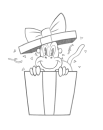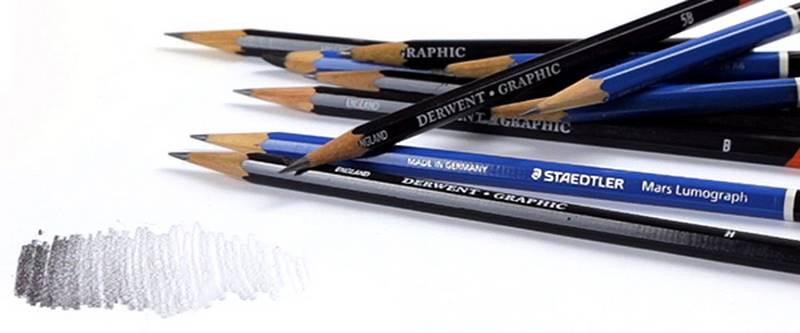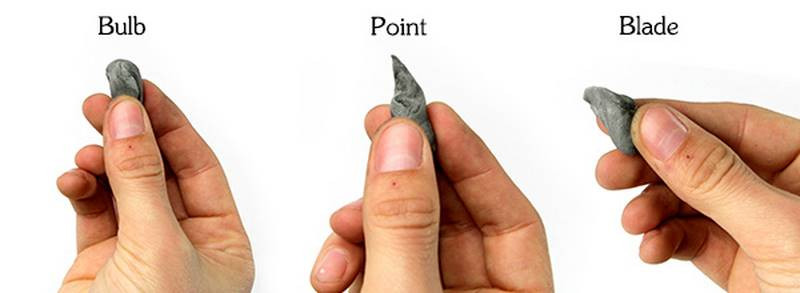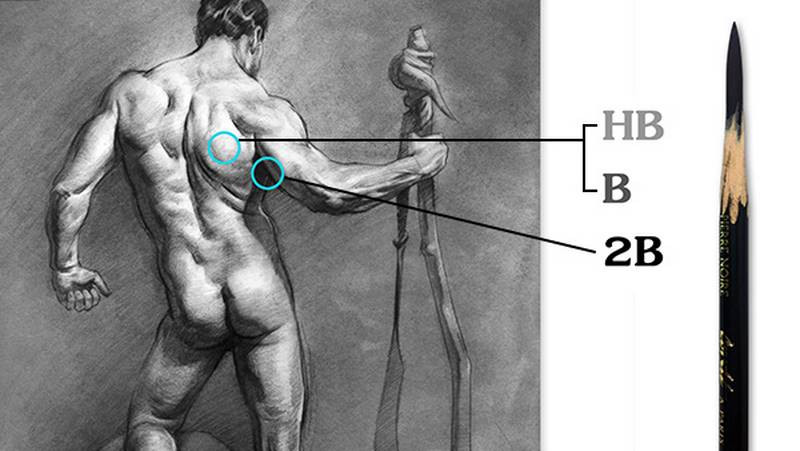Figure Drawing Fundamentals
In my last supplies video I went over supplies I use in my videos. Now let’s go over the ones I use for longer drawings intended to be hung at a gallery or someone’s home.
I commonly use charcoal on newsprint paper when sketching and demonstrating. Newsprint is very cheap and an enjoyable surface to draw on because of how cleanly it takes the charcoal. However, newsprint is not archival. It will yellow and wrinkle over time. So, if you’re doing a longer drawing that you want to preserve, it’s not a good option. So, let’s go over some archival options.
This page contains affiliate links, meaning we get a commission if you decide to make a purchase through our links, at no cost to you.
Graphite Drawings
- Staedtler Mars Technico Lead Holder
- Lead Refills - HB, 2B and 4B
- Lead Pointer (thats what they call their sharpener)
- Strathmore 400 Series Bristol Board
- OR Strathmore 500 Series Bristol Board * paper - look for ‘hot press’, ‘smooth’, or ‘plate’ - they all mean smooth.
- Kneaded eraser
- Charcoal Powder
- Brushes - any Flat Bristol and Large Filbert/Round Sable
- Scrap paper or Bridge to rest your hand on
- Spray Fixative
So, the first option I’m gonna go over is using graphite pencils, instead of charcoal.
Graphite pencils are great! They get you almost a full range of values, you can get a bunch of them with varying degrees of hardness, they allow for very precise detail drawing, and they don’t smudge much.. Most of us have been using graphite pencils since first grade. It’s your everyday #2 pencil. So, we’re comfortable using it.
Graphite works best when using only the tip of a finely sharpened pencil. Since you’re always using the tip, the drawing ends up being very detailed. The medium wants to be very precise, but it also takes a much longer time to shade.
Though you can just use any old #2 pencil to do a drawing, I recommend getting some professional grade tools. When I made the switch I noticed a significant improvement in my line quality and precision.
My favorites are the Staedtler brand. Individual wooden pencils are good, but I like the mechanical even more.
I like that it’s slightly heavier and the sharpener that you get for it gets the tip very sharp, and mechanical pencils stay the same length no matter how many times you sharpen them, so you don’t have to deal with tiny little pencils.
With wooden pencils you have to rely on access to an electric sharpener wherever you go or carry one of those crappy portable ones. The sharpener for the staedtler mechanical pencil is portable AND it works beautifully.
The whole pencil setup will cost you a bit, but it’s worth it. Let’s go through each item.
Staedtler Mars Technico Lead Holder & Lead Refills
You’ll need a Staedtler Mars Technico Lead Holder. Now this doesn’t hold your regular 0.5 and 0.7 mm lead. Oh no, you’re working with the big boys now. This guy holds 2mm lead! I get the hb, 2b and 4b refill packs.
I use the hb for the initial layin and light halftone shading, the 2b for darker halftones and some shadows, and the 4b for the darker shadows.
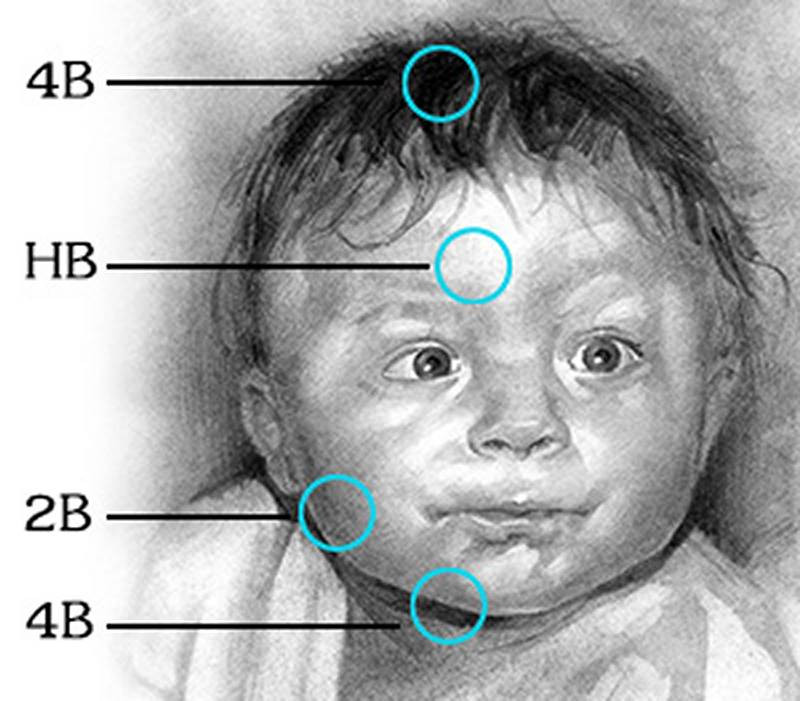
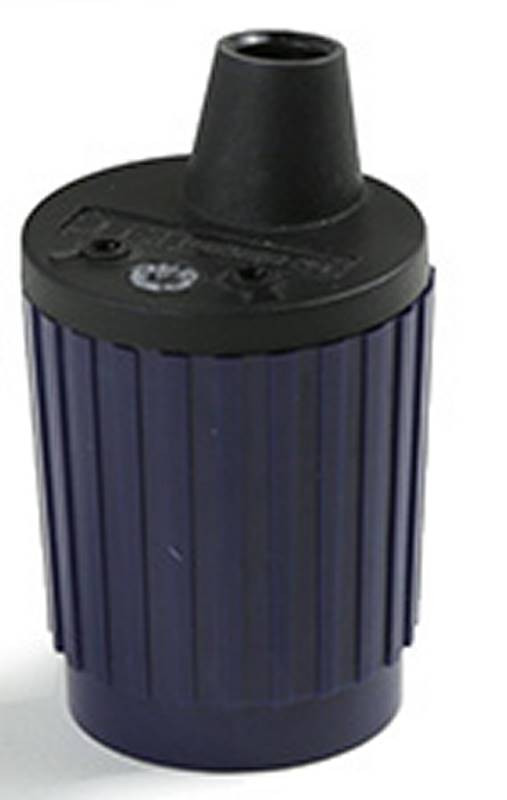
Lead Pointer (sharpener)
You’re gonna need a ‘lead pointer’, that’s what they call their sharpener. Pull out about 1.5 cm of the lead, put it in the hole and spin! Just be careful not to get too wild with the sharpener because you can break the tip
Strathmore 400/500 Series Bristol Board
For the paper, I like to use the Strathmore 400 or 500 Series Bristol Board. I prefer the smoothest surface possible, so I look for the words ‘smooth’, ‘plate’ or ‘hot press’. They all basically mean ‘smooth’.
Kneaded Eraser
To erase, I like a kneaded eraser, or as the british call them, “rubbers”. I like ‘em because I can shape them to erase large areas, or small details.
They also don’t poop crumbs all over the paper like some others do. And when they get dirty, just knead them to clean ‘em up.
Charcoal Powder and Brushes
Optionally you can add a layer of charcoal under the graphite pencil. Though I do use it for most of my longer drawings, you could manage without it.. The powder is applied with a brush, which I’ll show in the shading video. This allows you to create very soft gradations which are hard to do with the pencil. And it allows you to quickly cover large areas of dark which is tedious to do with the pencil. When you use the powder you blend a lot of your shapes together which can reveal some lost edges. And lost edges look totally awesome in a drawing...
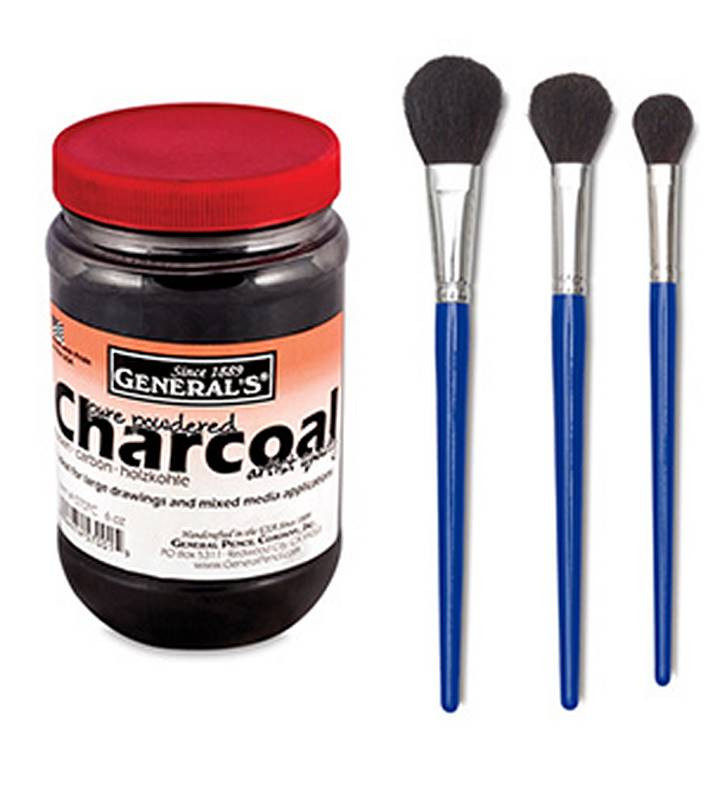
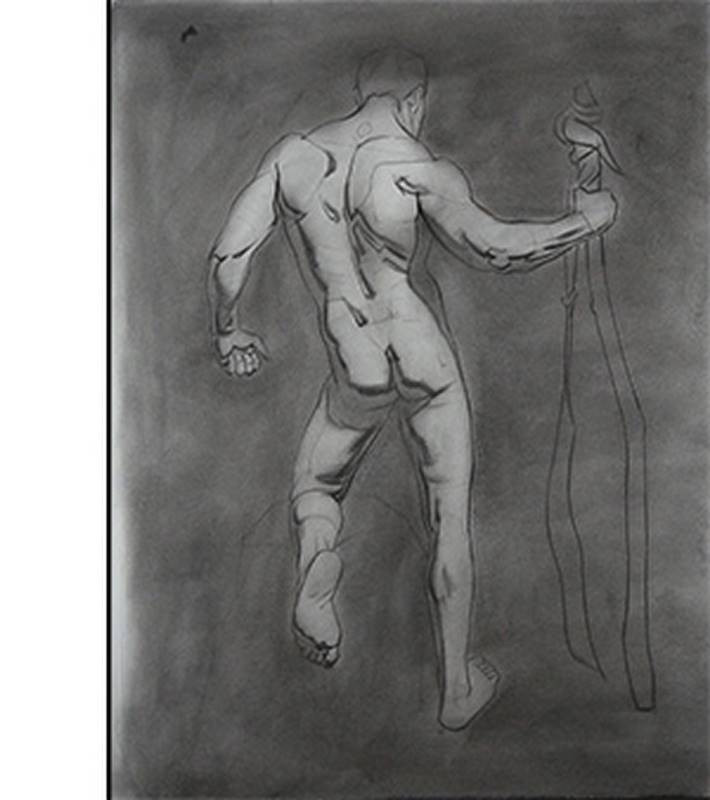
I use this same approach in my video on Shading.
Scrap Paper or Bridge
You’ll also see me using a scrap paper or bridge to rest my hand on. If you’re like me, by the time you’re done with the drawing, the bottom of your hand is completely covered in charcoal. Use this to rest your hand on to keep your hand AND your drawing clean.
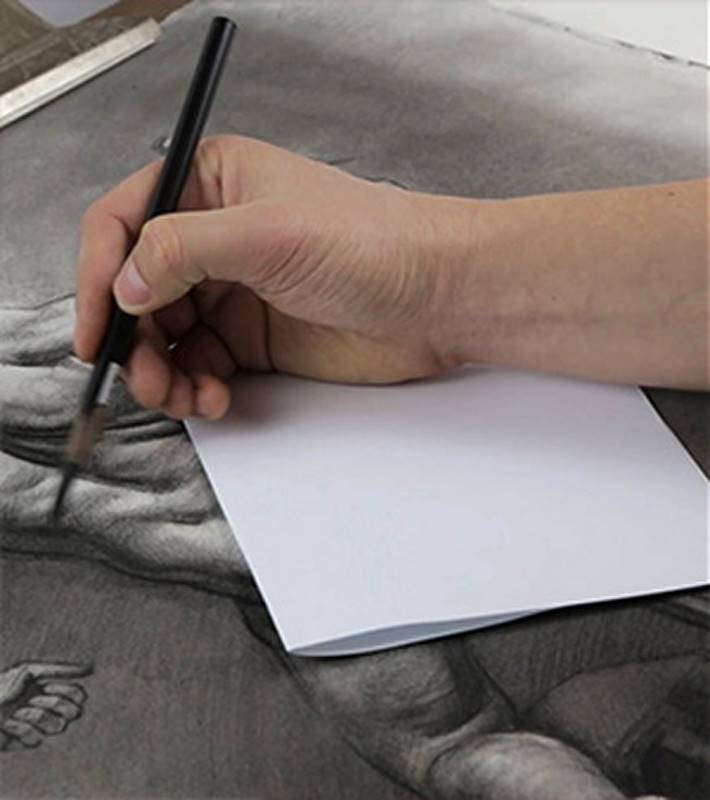
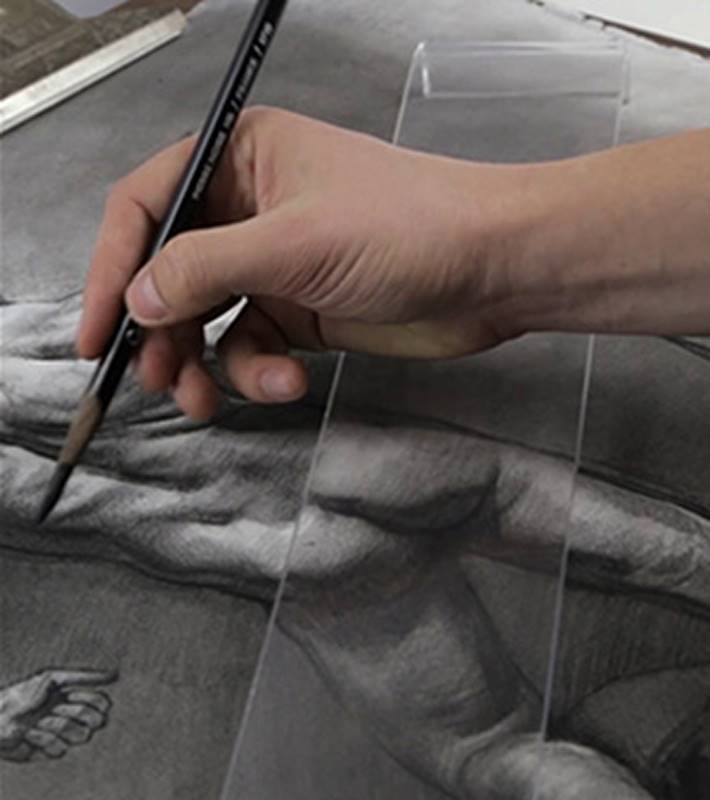
Spray Fixative
Once you’re done, you can spray the drawing with fixative to prevent any smudging. If you used powder, I really recommend you "fix it.
After you spray the drawing, you can draw on top of it, but you can’t erase what you sprayed.
***
One thing many people dislike about graphite is the shine. When you go dark with graphite it starts to become reflective. If this glossiness bothers you, then consider using charcoal pencils.
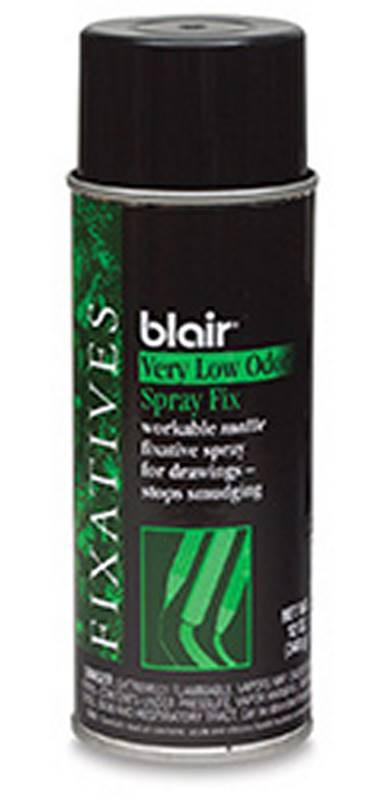
Charcoal Drawings
- Conte 1710 B or 2B Charcoal Pencil
- Arches 88 Silk Screen Paper - great alternative to newsprint
- Kneaded eraser
- Charcoal Powder
- Brushes - any Flat Bristol and Large Filbert/Round Sable
- Scrap paper or Bridge to rest your hand on
- Spray Fixative
So, a lot of the materials for my charcoal drawings is the same as graphite. We still have the kneaded eraser, powder, brushes, scrap paper or bridge, and the spray fixative. The only two differences are the pencils (obviously, they’re charcoal instead of graphite) and the paper. You could use the same paper for both, but these are just my preferences.
Conte 1710 Pierre Noire Pencils
The pencil I use is a Conte 1710 B or 2B. I like to use the HB or B for layins and shading the light halftones, and the 2b for shading the shadows. If you’re wondering how to sharpen it, check out this video which includes a pencil sharpening demo.
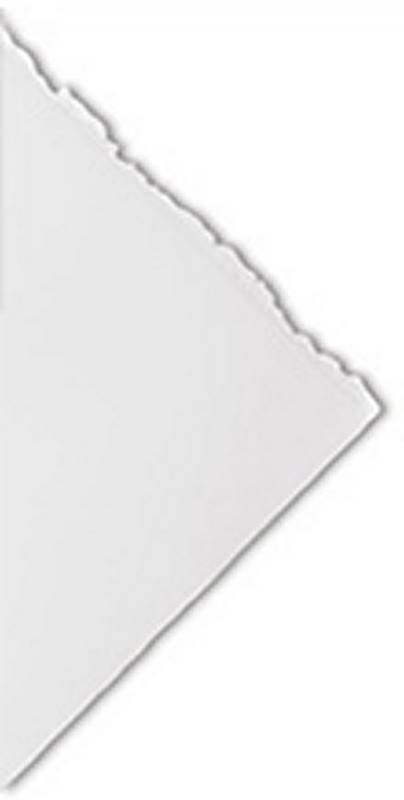
Arches 88 Silk Screen Paper
I've been looking for a paper that takes a charcoal pencil cleanly without much texture breaking up the strokes, especially when using the side of the pencil to get soft gradations of tone. Most of them just don’t do it for me.
“Arches 88 silk screen paper” is the best I've found. It has very little texture, it’s soft, and doesn't fall apart much when erasing. If you're used to drawing on newsprint this is a good archival alternative
Where do you get this stuff?
Above I have the full list of all these supplies with links to where you could buy them online. Depending on where you live, you might be able to find this stuff at your local art store. But, I don’t know. You guys are watching this video all around the world, so I have no idea about the availability of these where you might be. Hopefully you could at least buy them online and the shipping isn't too expensive.
***
To see an example of how I use these supplies, watch my next video.
